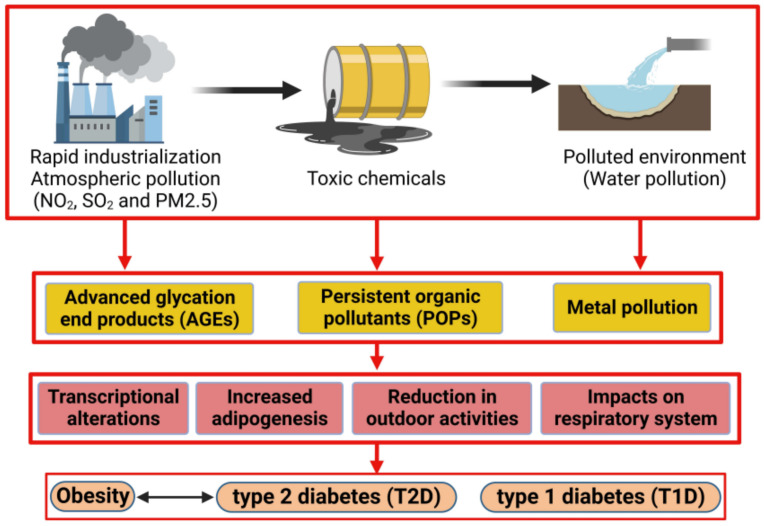Figure 2.
Effect of environmental pollution in developing metabolic disorders: rapid industrialization, toxic chemicals and a polluted environment generate a massive number of endocrine disruptor compounds (EDCs), for example, advanced glycation end products (AGEs), persistent organic pollutants (POPs) and metal pollutants, that affect the normal physiological functions in the human body. Disruption of cellular and physiological activities in response to EDCs increases the risk for development of obesity and diabetes.

